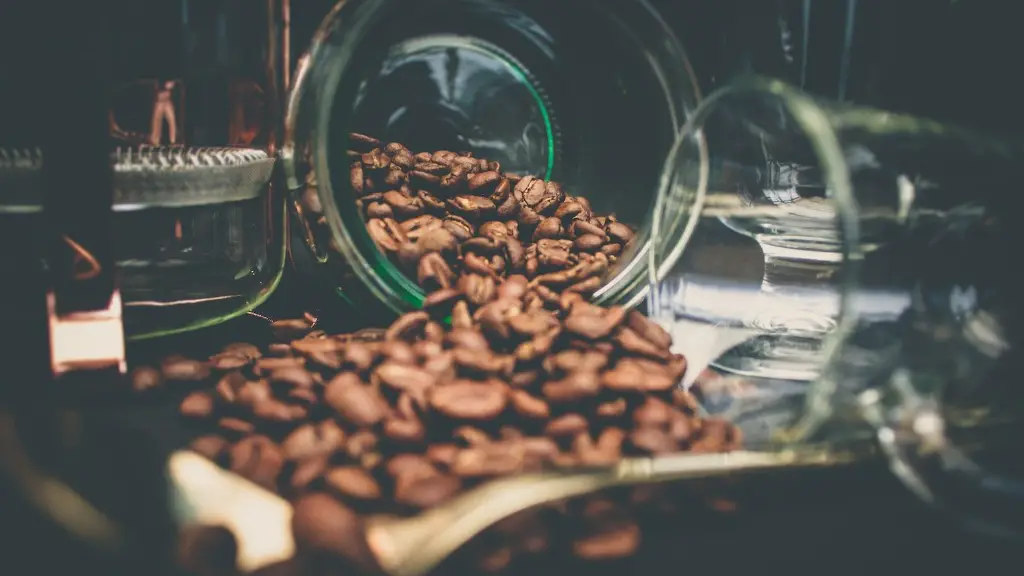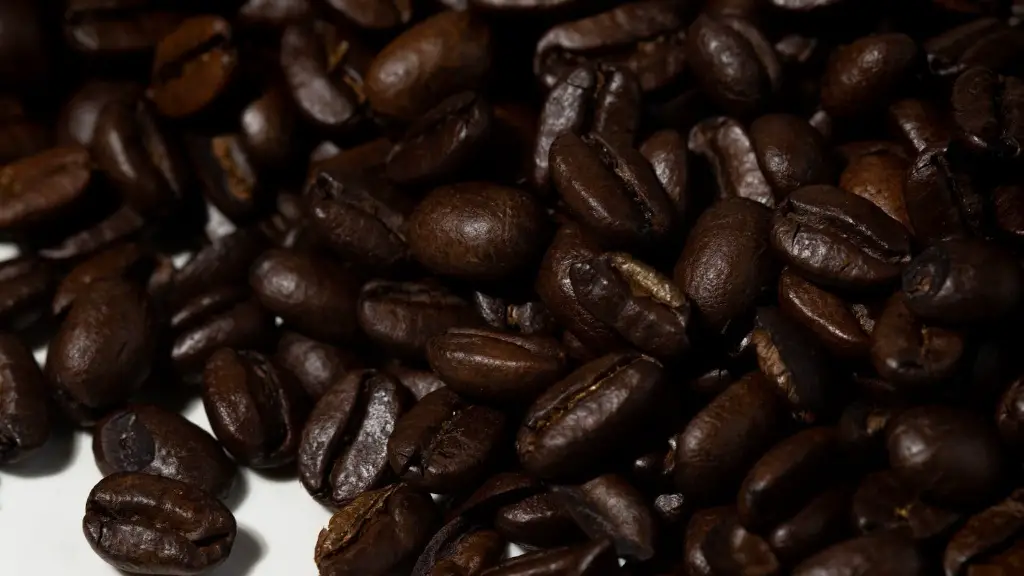Most of us reach for a cup of coffee to give us energy during a slow day at work or school, only to wind up feeling even more exhausted as soon as the caffeine wears off. We frequently resort to grabbing a cup of coffee when we need an energy boost, but why can’t it make a lasting difference?
The answer lies in physiology and biochemistry. Caffeine primarily works to temporarily reduce perceivable levels of fatigue by blocking adenosine receptors in the brain. Caffeine triggers the release of dopamine, which binds to these receptors and produces stimulating effect. It also leads to the release of adrenaline, a hormone that further amplifies the effects of caffeine on the body.
However, it’s important to recognize that caffeine is not an infinite energy source. It doesn’t create energy, rather it only makes use of the energy which is already existing in the body. And when that energy has been used, the body will be left feeling even more fatigued.
It’s usually a good idea to limit our daily caffeine intake to a moderate amount. In general, up to 400 mg of caffeine is considered healthy for most individuals. This is about four cups of regular coffee, or three cups of premium coffee.
Excessive caffeine consumption can interfere with sleep quality, which will in turn further contribute to feeling sluggish. Therefore, it is best to avoid caffeinated beverages a few hours before bedtime.
In addition, it is important to pay attention to what else we are eating and drinking along with the coffee. Not getting the right amount of essential nutrients and not drinking enough water can also contribute to exhaustion.
Dehydration
Dehydration is one of the most common reasons why people experience fatigue. Most people don’t drink nearly enough water on a regular basis, so even a mild state of dehydration can be a contributing factor to tiredness.
The average person needs to drink at least eight glasses of water a day in order to stay hydrated and avoid feeling sluggish. It’s important to note that coffee or other caffeinated beverages doesn’t count towards hydration, as these beverages are actually very dehydrating.
It’s a good idea to drink a glass of room-temperature water before having a cup of coffee. This will help ensure that the body is properly hydrated and can help reduce or prevent the feeling of exhaustion.
Exercise
Physical activity, such as regular exercise, is a great way to keep red-eye and tiredness at bay. It increases the rate at which oxygen and glucose circulate throughout the body and brain, allowing you to think more clearly, concentrate better, and stay more alert.
Exercise also releases endorphins, a type of neurotransmitter that makes us feel happier and relaxed. Getting in at least 20 minutes of exercise a day will help you feel more energized and focused, as well as potentially decrease the amount of caffeine you need to rely on to get through the day.
Food
When looking for an energy boost, it’s easy to overlook food in favor of caffeine. Eating small, nutritious meals and snacks throughout the day have a much better effect on energy levels than relying solely on caffeine.
Focus on whole, unprocessed foods such as fruits and vegetables, lean proteins, and complex carbohydrates. Eating these types of foods helps to provide steady, long-lasting energy and will make you feel better overall. It’s also important to avoid skipping meals or eating too little, as this can further contribute to feelings of exhaustion.
Sleep Habits
Improving sleep habits is crucial for preventing exhaustion. The body needs proper rest in order to recharge and stay energized. Not getting enough sleep can have a significant impact on daytime energy levels and impede cognitive performance.
Studies have found that the quality of sleep is just as important as the quantity of sleep. You need to ensure that you are getting enough uninterrupted sleep, at least seven to eight hours a night for adults and nine to 10 hours for children and teens. Sticking to a consistent sleep schedule will also help you sleep better and feel more energized during the day.
Supplements
Supplements can be a useful way to access additional nutrients that can help to boost energy levels. Vitamin B12 is essential for energy production, as well as iron, magnesium and iodine. Adaptogen herbs such as ginseng, ashwagandha, and maca can also provide a natural energy boost.
Including the right supplements in your diet can help to increase energy levels and keep you feeling energized throughout the day. However, its important to speak to a medical professional before taking any supplements.
Stress Management
Stress is a major contributor to feelings of exhaustion and fatigue. In fact, many cases of mental and physical fatigue can be traced back to chronic stress or other negative emotions. Managing stress levels can therefore have a profound effect on energy levels.
Finding healthy ways to reduce stress such as exercise, mindfulness, and even socializing can be effective methods to reduce fatigue and feel more energized. Taking regular breaks throughout the day and setting aside time to relax can also help to combat the effects of stress.
Conclusion
Drinking coffee may provide a short-term energy boost, but it cannot replace other lifestyle habits and behaviors which are essential for avoiding fatigue. If you find yourself frequently exhausted, consider these tips and strategies to help you feel more energized and alert.





